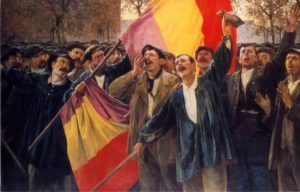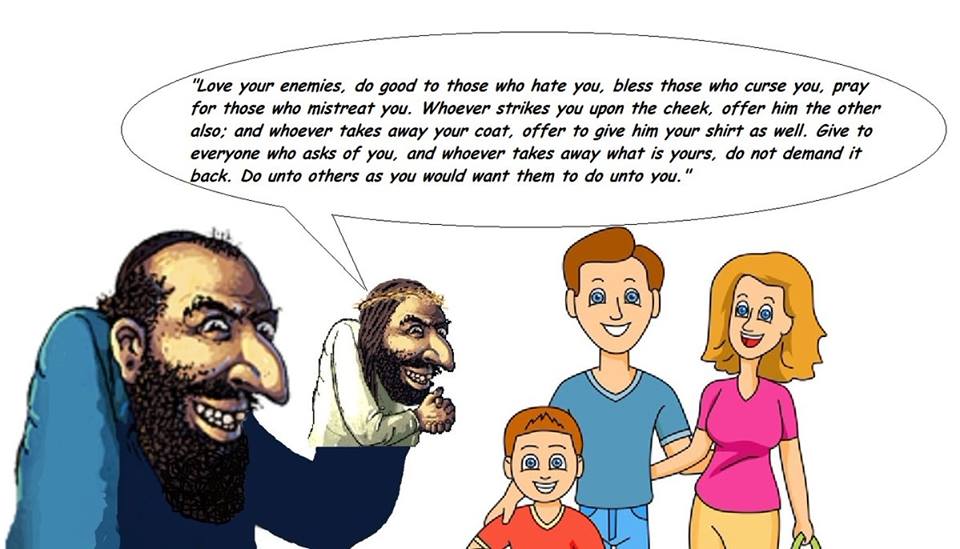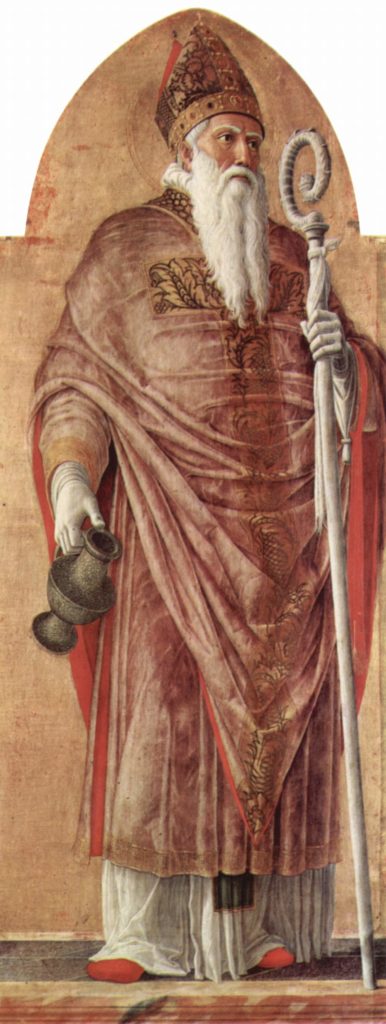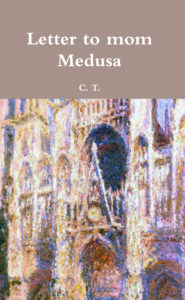Editor’s Note: Below are excerpts from the second chapter, ‘Flawed’, of David Irving’s book on Heinrich Himmler (available through Irving’s bookstore here).
 Like water splashes, the relics of Himmler’s life lie splattered around the globe. His household papers and some diaries are in Russia, his childhood epistles to his parents are stolen property in Israel, and his photo albums in Stanford, California – taken illegally by American Red Cross girls billeted in his lakeside villa in Gmund; the scores of letters to his mistress ‘Hedwig’ are owned by a soldier’s son who lived in Chestnut Street, Chicago, where we read them. Each tells us something about Himmler’s character: The Nordic runes he used to sign those letters… the manner in which he wrote a neat caption for each photo in ink using a Gothic script that is all but illegible now to his countrymen…
Like water splashes, the relics of Himmler’s life lie splattered around the globe. His household papers and some diaries are in Russia, his childhood epistles to his parents are stolen property in Israel, and his photo albums in Stanford, California – taken illegally by American Red Cross girls billeted in his lakeside villa in Gmund; the scores of letters to his mistress ‘Hedwig’ are owned by a soldier’s son who lived in Chestnut Street, Chicago, where we read them. Each tells us something about Himmler’s character: The Nordic runes he used to sign those letters… the manner in which he wrote a neat caption for each photo in ink using a Gothic script that is all but illegible now to his countrymen…
His interests were manifold. In early years he set aside time to immerse himself in archeology, in the occult, and the religions of the Far East. For Christmas 1938, he sent over to Hitler a book entitled Death and Immortality in the World View of Indo-Germanic Thinkers. He hoped it would mark a high point in the festivities, and signed it personally for his ‘Fuhrer’… In May 1938 Himmler despatched a year-long expedition to Tibet, headed by German zoologist Ernst Schäfer, to explore the story of a primaeval Germanic race which had inhabited the region.
______ 卐 ______
Editor’s Note: With the benefit of hindsight, and taking into account what I said yesterday about Robert Morgan’s interpretation of the American Civil War, it seems clear to me that the German expedition shouldn’t have been directed at distant Tibet, but at the United States of America, home of the Jewish golden calf in NY, Hollywood and media that would so influence the war, and of the Anglo-Saxon traitors who, led by Lincoln, had already waged a fierce anti-white war on the other side of the Atlantic.
______ 卐 ______
The British lies about Himmler, and his unseemly end, would outlast many who believed them. We shall find a different picture of Himmler emerging from the pages which follow…
SS Standartenführer (Colonel) Hans Lingner, commander of the 17th SS Panzergrenadier Division was heard to remark months before the end in 1945: ‘It is generally said that Himmler is hated by the people. But that isn’t the case at all.’ He had heard of a speech Himmler once made with great applause to armament workers. ‘Afterwards even the most plain-spoken fellows went up and asked him to shake hands with them, it really came straight from their hearts. He’d be the right man for post-war. I believe, too, that he’d be able to make the change over. He would be able to see that everything has gone to the devil anyway, that our first duty now is to maintain the bare existence of the people…’
Carl Jacob Burckhardt remarked at the League of Nations to Roger Makins, Britain’s man in Geneva, a few weeks later that Himmler was ‘disgusted by the anti-Semitic outrages.’ Makins learned that Hitler too was ‘not pleased’ by the Kristallnacht… Himmler’s chief of staff Karl Wolff would say years later that he had become harder only as the Second World War progressed. He was an amiable human being who became what he was only as a result of the war’s rising climate of barbarism and brutality, said Wolff. His concern for his men was genuine, but carefully calculated. He knew how to ingratiate by a display of compassion and understanding…
There was one aspect on which all the sources agree. Himmler acquired no personal wealth. Even army officers admitted that he was incorruptible, and stood out from others in that respect. ‘He is the only man about whom you don’t hear anything bad,’ Major-General Bock von Wülfingen was heard admitting, to nods of approval from his fellow generals late in 1944. ‘He has neither lived in luxury, nor in great style.’ Himmler regarded financial wrong-doers as the worst, and punished them ‘mercilessly’ (as his bodyguard Josef Kiermaier put it). ‘Money spoils the character,’ he was heard to scoff. It was a paradox that Himmler, whose Operation Reinhardt from 1942 to 1943 would involve robbery on an unparalleled scale, should display anger at the petty thieving of others…
Himmler had bought a small lakeside villa at Gmund after the National Socialists came to power, on the shores of the Tegernsee lake in Bavaria; it cost around 65,000 Reichsmarks, not an impossibly large sum, but his income was only modest and it took him six years to clear the debt. Visiting him in 1938, his Ordonnanzoffizier Diether Lönholdt found the villa set some way back from the road, on the southern exit from Gmund; it was a two-storey building, with Himmler’s office on the ground floor. Josef Kiermaier, the police bodyguard who joined his staff in June 1934, often saw him there – usually in the summer or at Christmas. ‘Staying down at Gmund the Reichsführer lived with his wife and daughter, whom he adored,’ recalled Kiermaier. The Himmlers were popular with their neighbours: ‘His modesty and simplicity in dealing with the locals helped him gain their respect’…
In peacetime Berlin, Himmler’s routine had hardened. He was at his desk at ten, and his adjutant began showing in visitors – a late visitor would find his appointment cancelled – not just postponed. At two p.m. he and his circle ate in the canteen, a simple repast after which he worked on until eight p.m.; after supper he carried on until one or two in the morning. He recorded his punishing routine remorselessly in his diary, and once even repeated it to his mistress. ‘He’s a glutton for work,’ grumbled an army major, ‘and expects the same from others. They don’t have any private life.’ Asked where Himmler lived, the major revealed: ‘In Berlin, only he’s always rushing around elsewhere, he is totally driven, he works almost more than the Fuhrer.’ (The awed almost is to be remarked upon)…
______ 卐 ______
Editor’s Note: A true ‘priest of the fourteen words’!
______ 卐 ______
‘Foreign countries,’ said Meyer, with a trace of pride in his voice, ‘have realised that Himmler is top dog in the Reich. Goring is just a child.’ Kurt Meyer is now seen as one of the finest division commanders that Germany produced; when he died in 1961 fifteen thousand people attended his funeral in Hagen.
Barely noticed amongst his major sins, Himmler had a minor flaw. He displayed not even a passing interest in the arts. Risking disfavour at the highest level, he made no secret of his view that two hours could be spent more profitably than in the concert hall or theatre. This did not escape Hitler’s notice, and in 1945 he dismissed Himmler’s ambitions with one crushing remark: He is totally unmusikalisch – unmusical (or perhaps, ‘tone-deaf’). Albert Speer shared this judgment, saying, ‘He was unable to appreciate art.’
As a full-grown man, Himmler did have some friends – they came to visit, went hunting with him, or succumbed to his passion for fishing. His family albums have pictures of punting parties on their local lake – Himmler clad in felt hat and Lederhosen; Himmler seated on a flower-decked meadow at a picnic surrounded by family and friends, days before the ruinous attack on the Soviet Union. Shown the caricatures appearing in enemy propaganda, of Himmler the hangman, he just chuckled.
In fact he was not devoid of a certain grim sense of humour. At the end of November 1940, he joined a shooting Party in the Sudetenland, including Alexis Aminoff of the Swedish foreign ministry. On the first day, as they set out from Berlin in the customary large limousines, he stressed to Aminoff, seated next to him, the common Nordic bonds linking Germans and Swedes, and the many successful intermarriages including that of Goring for example. Unaware of Himmler’s identity, Aminoff countered that the Swedish press was free, and not in the grip of a secret police, whereupon Himmler identified himself with that jovial grin. The Swede weaseled his way out – he found this hard to believe, surely the real Himmler was always attended by a large bodyguard? ‘Inside Germany,’ the Reichsführer assured him, ‘I have no need of any bodyguard.’
The Party proceeded to wreak due slaughter on some three hundred cock pheasants on an estate formerly belonging to Archduke Frederick of Austria, and then at a shoot near Magdeburg, where one hundred boar(s) and sixty deer were no less sportingly put to death.
______ 卐 ______
Editor’s Note: Hitler was astonished to learn of these hunting escapades of Himmler and others. The Reichsführer may have been a priest of the 14 words, but Hitler was the priest of the 4 words as well (‘Eliminate all unnecessary suffering’).








